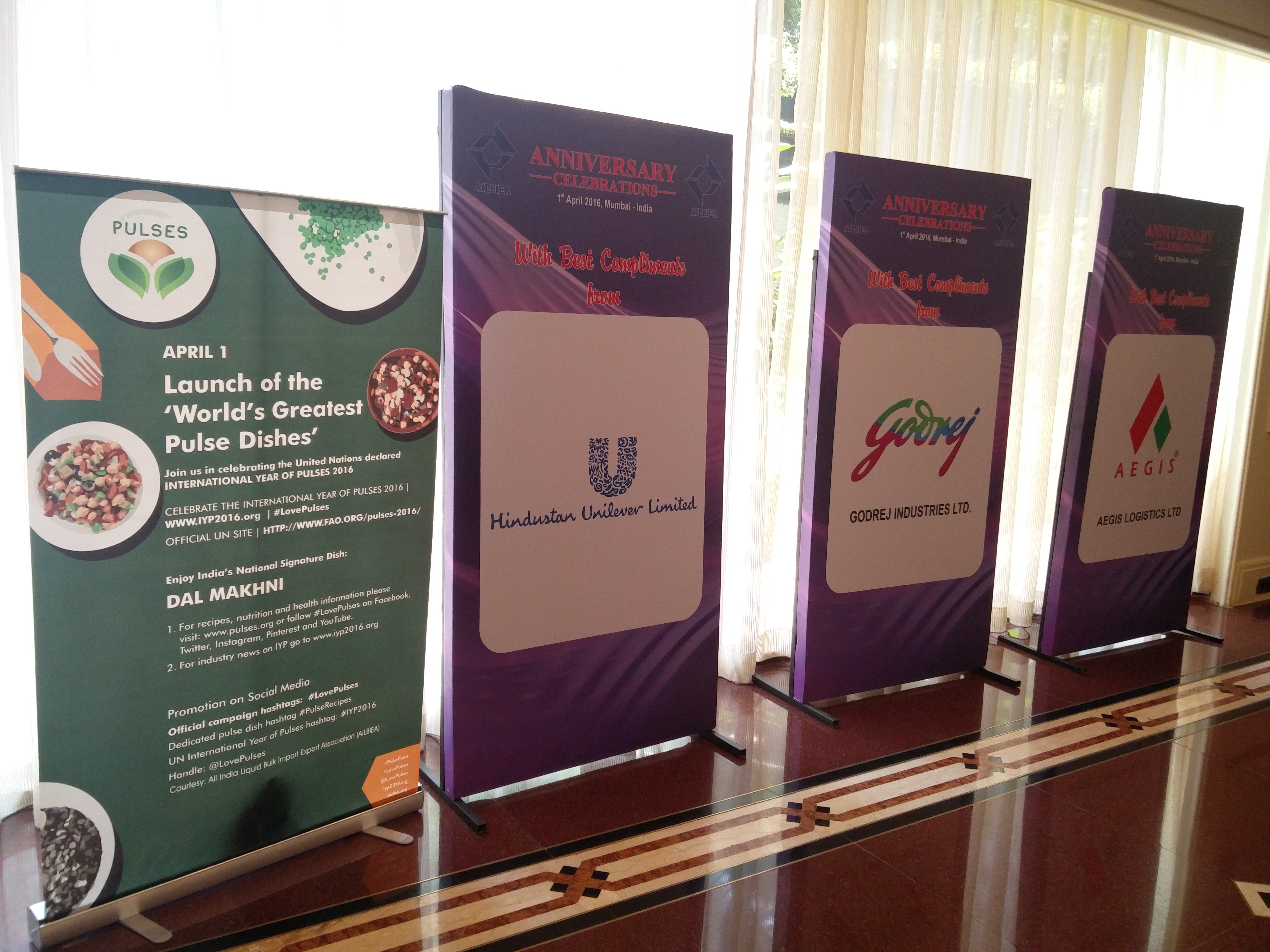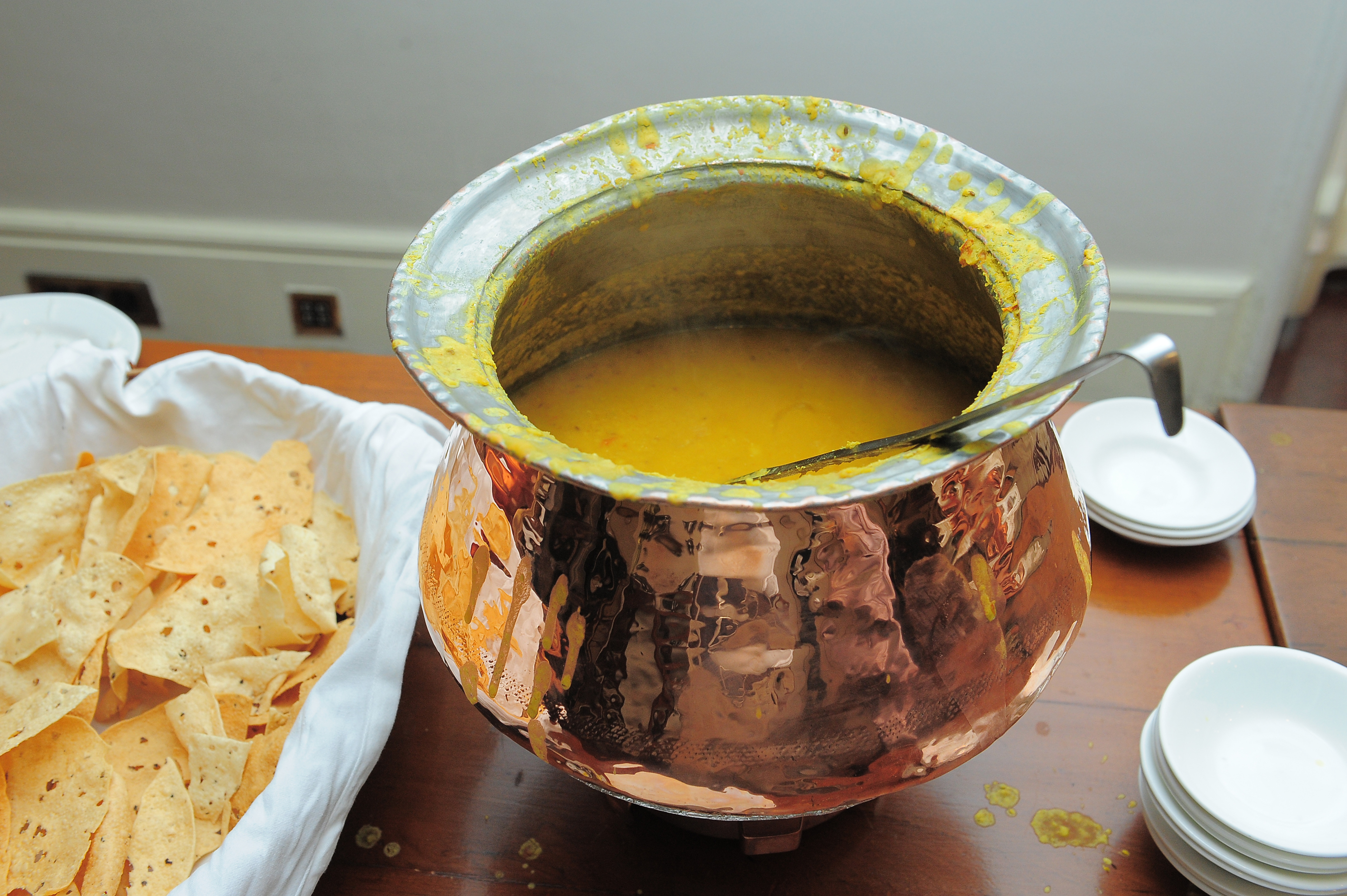- Details
Global demand for pulses is rapidly increasing. Pulses are emerging as ‘future food’ in developed and many African countries. For South Asia region, pulses are traditionally important food commodities and cheap sources of protein. The region is now experiencing shortages of pulses and causing increase in imports. The challenge is to increase pulses production efficiently not only to meet the domestic requirement in the region but also supply for new consumers in developed and African countries.
To address this issue, a conference will be organised on 31 May-1 June 2016 in New Delhi, India. The conference is jointly organised by the International Food Policy Research Institute (IFPRI), National Academy of Agricultural Sciences (NAAS), and TCi of Cornell University (TCi-CU).
Call for Abstracts
Participate in the conference and submit abstracts in any of the following topics by 30 April 2016:
Theme 1: Pulses production, consumption and environmental services
- Pulses production and their drivers (price and non-price)
- Pulses consumption and their drivers (prices, income and preferences)
- Climate change and role of pulses in environmental services
Theme 2: Pulses prices and markets
- Pulses prices and their market integration
- Inflation in pulses and causal factors
- Pulses retailing and processing
Theme 3: Policies and institutions
- Pulse seed sector
- Value chains and aggregation models in pulses
- Spill-over effects of cereal policies on pulses
Theme 4: Pulses for human health
- Pulses for nutritional security and health
- Pulses in PDS for nutritional security
- Pulse convergence innovation and nutritional security
Selected abstracts will be included in the conference, and travel grant will be supported for participation. Submission deadline is 30 April 2016.
You can send in the abstract to Vaishali Dassani (This email address is being protected from spambots. You need JavaScript enabled to view it.).
- Details
Enjoy the nutrition and convenience of processed pulse products
Cooking dry grain pulses in about 15 minutes? I don’t think that is possible, maybe with a pressure cooker? But the pressure cooker easily mashes the beans or is not available in many households! That is a question that most of us may find incredible to be asked, but still interesting.
Why haven't there been any pulse-based items in the meal? You ask any middle-level hotel in Uganda or other parts of Africa and the response would be: “Preparing the pulses takes a long time, and we cannot offer the readily available canned beans, they are very expensive.” Response from a household will not be too different! “We can cook once a week and have them last for at least two days. We can’t cook every day; it requires a lot of fuel and time.”
While taking lunch, it crossed my mind that we have not had any bean-based meal during any of the four days at the hotel where we were having a workshop on pulse processing, and at that moment, everything started falling into place. A study in Uganda shows that the amount of fuel used to prepare meals can be very high. On average, it is estimated that a family requires about one kilogram of charcoal per person per day to cook a meal in Uganda. For a family of 5 or more, that is so much charcoal per year. If its firewood, then you need them in large quantities, and this firewood, which is scarce, mostly requires women and children to search for them in the bushes. Many hours lost, and smoky cooking for hours. For urban areas, this costs them more.
FAO data (2015) estimates that about 220 million people in Africa are calorie deficient. According to a study by Lancet (2013), of the 34 countries that account for 90% of the global burden of malnutrition, 22 (64%) are in Africa.

Including pulses in the diet can help eradicating this hidden hunger. Pulses are protein rich - they provide twice as much protein on average (23%) as wheat and three times as much as rice. Besides being protein rich, they also provide other nutrients like multifaceted carbohydrates, elevated proteins, dietary fibre, minerals, and vitamins; they also contain a rich variety of polyphenolic compounds with prospective health benefits. So including pulses, especially in the diets of low and middle-income households of Africa becomes critical.
Pulses are an important staple food in sub-Saharan Africa, both in rural and urban areas of Africa. One of the biggest limiting factors to bean consumption is the time required to cook them and, consequently, the amount of fuel or firewood required for cooking.
As the heat of the day wore during the workshop and gave way to a cool breeze, I got convinced that unless something is done about how we cook pulses, we may not fully take-in the nutritious benefits that pulses offer. Thinking about the low-income households, it can only get relatively more costly fixing a bean meal that can eradicate the ‘hidden’ hunger. To many, there are quite a few alternatives to cooking and consuming dry pulses- beans, cowpea among others. Unless of course one is talking about canned beans and the like, which naturally fall outside the consumption choices of most consumers, save for high-level hotels and richer consumers in urban areas.
But another challenge awaits consumers of pulses in the current raw form: some of them require much energy and time to prepare. It takes as many as three hours to cook dry bean – this goes against the grain, especially for current urbanized populations that prefer convenience in their meals, as they do not have much time to prepare meals after daily work assignments. The cost of energy also discourages many households from regularly preparing their pulse based meals.
Contributing to the CGIAR Research Program on Grain Legumes, a new initiative supported by the International Development Research Centre (IDRC) and the Australian Centre for International Agricultural Research (ACIAR) funded Cultivate Africa’s Future (CultiAF) project targets the urbanizing middle to low income consumers in both urban and peri-urban areas to quickly cook and include beans as part of their daily diets. The CultiAF project is a collaborative effort implemented by the Kenya Agricultural and Livestock Research Organization (KALRO), National Research Organization (NARO, Uganda), International Centre for Tropical Agriculture (CIAT) and private sector partners, seeks to address the demands for quick to prepare, convenient bean based meals while at the same time ensuring that the value added products remain within the affordability of a majority of consumers.
The project uses fast cooking bean varieties to develop new processed bean products that reduce cooking time even further, to just under 15 minutes. Constant feedback is provided to bean breeders to incorporate the desired fast-cooking traits in their breeding efforts. Partnerships between private sector processors and the pulse researchers are bearing fruits to address the low prevalence of affordable processed bean products in the market. The partnership is keen to ensure that the processed products are not a preserve of the rich only but that they can be affordable to even rural based consumers.
A survey on the potential uptake of processed bean products in south-west Kenya indicates that even rural populations are looking forward to such processed products and that they will be willing to pay for them.
With this partnership, we can be sure that the benefits of pulses: high in fibre, protein, complex carbohydrates, iron, and zinc that are great for enriching our diets, especially for pregnant women and growing children, are available to consumers in a convenient and affordable manner.
Interestingly, the partnership extends to the farmers who will also benefit from a secure market for the beans delivered for processing. Developing precooked bean products will support farmers to plug into new markets that have a strong potential to deliver higher returns for the farmers. It is estimated that about 7500 farmers in Kenya and Uganda will benefit directly by supplying grains suitable for processing. Many farmer groups and processing farms will provide expertise in processing and support in the pre-cooked bean products value chain.
So next time you visit a supermarket or regular shopping mall in Kampala or Nairobi (and other many places) visit the pulses section and enjoy the nutrition and convenience of processed pulse products. These products will save you money, time, long teary cooking sessions.
About the author:
Dr. Eliud Birachi is Market Economist at CIAT in Kenya. As a research scientist, he supports value chain development and market-linkages of CIAT and the Pan-African Bean Alliance program in sub-Saharan Africa. Before joining CIAT, Dr. Birachi was Lecturer in the Department of Agricultural Economics and Business Management, Egerton University, Kenya. He holds a D.Sc. in Agribusiness from the University of Kiel, Germany, and an M.Sc. in Economics and Management (Management Studies) from Wageningen University, Netherlands. He has co-supervised the thesis work of Masters and Ph.D. students and has published several scientific papers on market value chain development and agribusiness. Current research also include gender and value chains.
- Details
 Researchers believe they have uncovered a promising opportunity for reaching smallholder farmers in developing countries with vital crops that could help them respond to a host of challenges including climate change and malnutrition. It could have important implications for the way seed sales and distribution are organised, particularly in sub-Saharan Africa.
Researchers believe they have uncovered a promising opportunity for reaching smallholder farmers in developing countries with vital crops that could help them respond to a host of challenges including climate change and malnutrition. It could have important implications for the way seed sales and distribution are organised, particularly in sub-Saharan Africa.
For decades, scientists have developed new crop varieties aimed at responding to the most persistent environmental and nutritional challenges faced by smallholders. But many of these have not made it to the people who need them most – the farmers themselves.
That’s because the method for disseminating new seeds neglects some of the most important outlets used by smallholders, according to research published in the journal Food Security today. The paper explains that modern crop seeds are typically sold by a relatively small group of licensed agro-dealers clustered in major towns and cities. The seeds are certified for quality and sold to farmers in sacks.
But following what is thought to be the largest study of seed transactions to date, researchers found that the majority of farmers in these countries do not buy seed from these so-called “formal” markets.
Instead the majority prefer to use local market stalls, independent traders and even “mom-and-pop” stores. These informal markets, while sometimes considered off-the-grid in terms of location, are often much more accessible for many farmers, especially women. Even though they don’t offer certified seeds, many farmers prefer informal markets, partly because they can buy from people they know and purchase in smaller quantities, enabling them to try different varieties at low risk.
In addition, informal markets tend to stock a much wider range of seeds that those available from agro-dealers, which typically sell only maize and a small selection of vegetables. It means smallholders use informal markets to purchase as much as two-thirds of beans and other legumes – vitally important smallholder crops due to their protein content.
“Science has a strong track record of innovation for developing stronger, higher yielding crops, but now it needs to focus on innovations in delivery,” said Louise Sperling, a senior technical adviser at Catholic Relief Services, who led the research while working at the International Centre for Tropical Agriculture. “As new varieties of heat or drought tolerant crops become available it’s crucial we get them into farmers’ hands quickly and effectively. Our findings suggest how and where we need to expand our efforts.”
They hope their findings could bring about recognition of the importance of informal markets, with a view to them eventually offering new varieties and high quality seed on a continuing basis.
It seems the world of crop improvement can certainly learn a thing or two when it comes to better distribution systems and catering to customer demand. It could help get better seeds into the hands of smallholder farmers and significantly increase the impact of scientific research.
The findings are a great way to celebrate the United Nations International Year of Pulses because it gives us a clear opportunity for reaching more farmers with better beans.
The Dry Bean Producers' Organisation (DPO) and The National Science and Technology Forum (NSTF) have partnered with IYP 2016 in South Africa. The following brands are also partners of IYP in South Africa:
Tiger Brands – Lion
Pioneer Foods – Imbo / Crossbow
Pouyoukas Foods
AGT Foods Africa
The Heart and Stroke Foundation SA
Everyone can get involved, visit http://iyp2016.org/ for more information.
ENDS 8 April 2016
For further information please contact:
Dean Miller
Group Marketing
Tel: +27 11 762 5261
Or
Kelly Barnett
Caro Communications
Cell: +27 82 776 0231
Notes to editors
- The Global Pulse Confederation (GPC) is the global not for profit trade organisation for the global pulse industry value chain. As the sole international confederation for the industry, it enjoys membership from 18 national associations (federations) and over 600 private sector members in an industry worth over $100 Billion at the retail level and over 60 million tons of pulse production and distribution in over 55 countries. GPC is headquartered in Dubai http://iyp2016.org/about-us/global-pulse-confederation-cicils-iptic
UN Assembly Resolution on the 2016 International Year of the Pulses: http://www.un.org/en/ga/search/view_doc.asp?symbol=A/RES/68/231&Lang=E
Upcoming Activities
For recipes, nutrition and health information please visit: www.pulses.org or follow #LovePulses on Facebook, Twitter, Instagram, Pinterest and YouTube.
For industry news on IYP go to www.iyp2016.org
Promotion on Social Media
Official campaign hashtags: #LovePulses
Dedicated pulse dish hashtag #PulseRecipes
UN International Year of Pulses hashtag: #IYP2016
Handle: @LovePulses
- Details
This article was written by G. Chandrashekhar, of The Hindu Business Line.
 The All India Liquid Bulk Import and Export Association (AILBIEA), the apex body of India’s liquid bulk trade covering mineral oil, vegetable oil, chemicals, industrial oils and so on, celebrated its 17th annual convention in Mumbai on April 1, 2016 at the prestigious Hotel Trident located downtown.
The All India Liquid Bulk Import and Export Association (AILBIEA), the apex body of India’s liquid bulk trade covering mineral oil, vegetable oil, chemicals, industrial oils and so on, celebrated its 17th annual convention in Mumbai on April 1, 2016 at the prestigious Hotel Trident located downtown.
The day began with a seminar in the morning as part of Make in India campaign wherein senior government officials and industry experts delivered a series of talks to managers, mid-level corporate executives, export-import officers and personnel of service providers on logistics related issues including cargo handling at ports, Customs clearance and post-clearance procedures and activities. About 125 delegates participated.
The meeting culminated with lunch where two pulse based dishes were served with signage: In Honour of International Year of Pulses.
As the Hon. Advisor to the association, I was invited to make a presentation on Indian macro-economy and potential of liquid bulk
trade. I took the opportunity to highlight IYP 2016. My thanks are due to the President of the association Mr. Jayant Lapsia for facilitating. A standee announcing IYP and launch of World’s Greatest Pulse Dishes displayed near the food station attracted interest.
The evening saw a larger turnout of over 300 delegates including several industrialists and corporate heads at the glittering award ceremony. Well known corporate houses present included Hindustan Unilever Ltd, Godrej Group of Companies, Supreme Petrochem Ltd, Aegis Logistics Ltd and many more.
Again there were two pulse based dishes prominently served with signage: In Honour of
International Year of Pulses. I thought it was a great opportunity to showcase IYP to influential
business groups that may have little idea about what IYP is all about.

